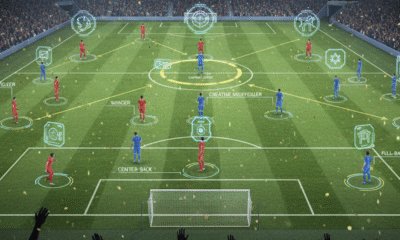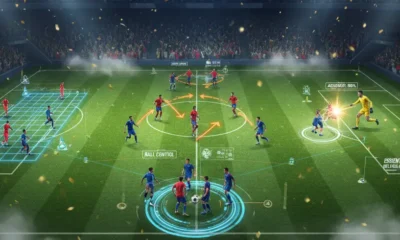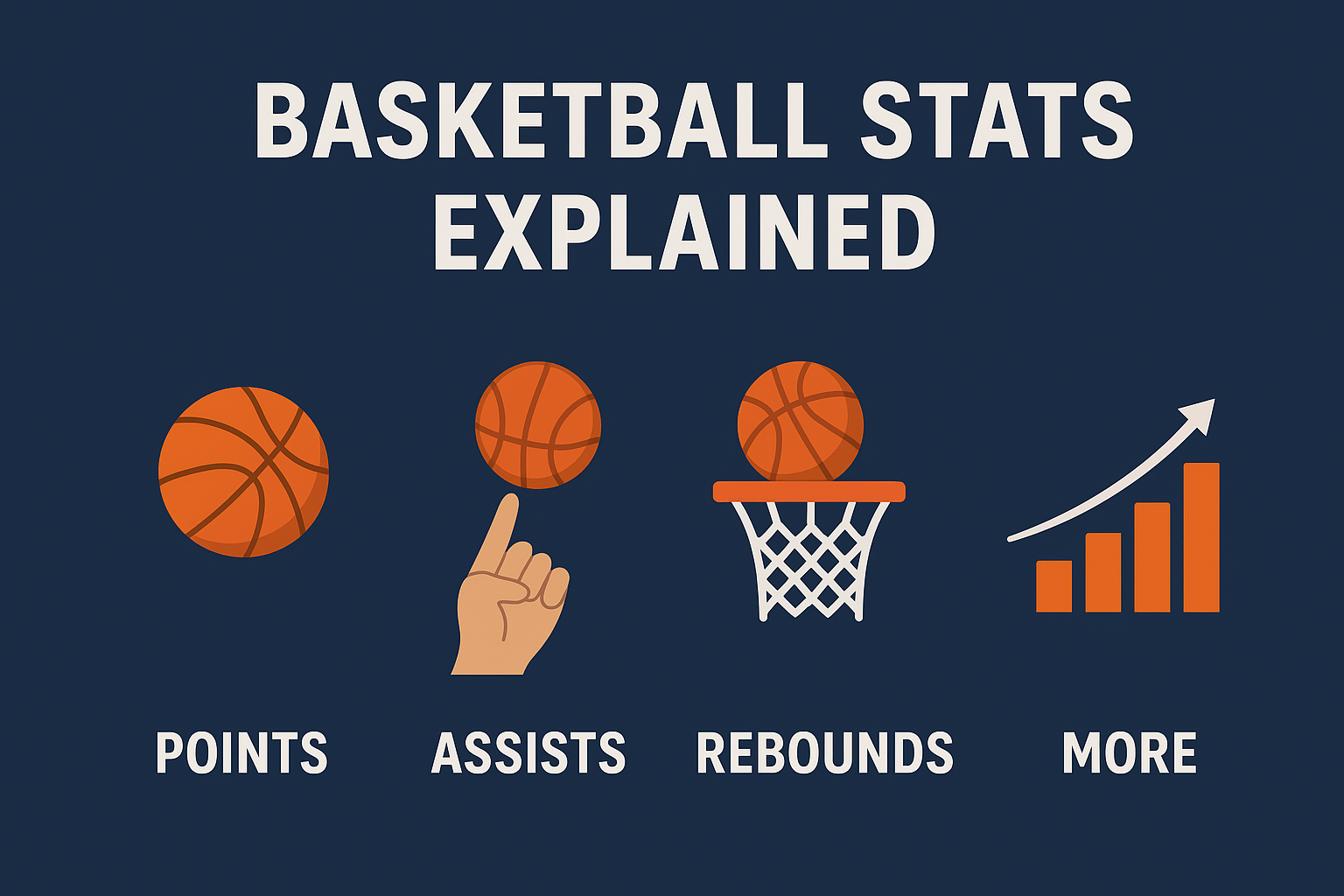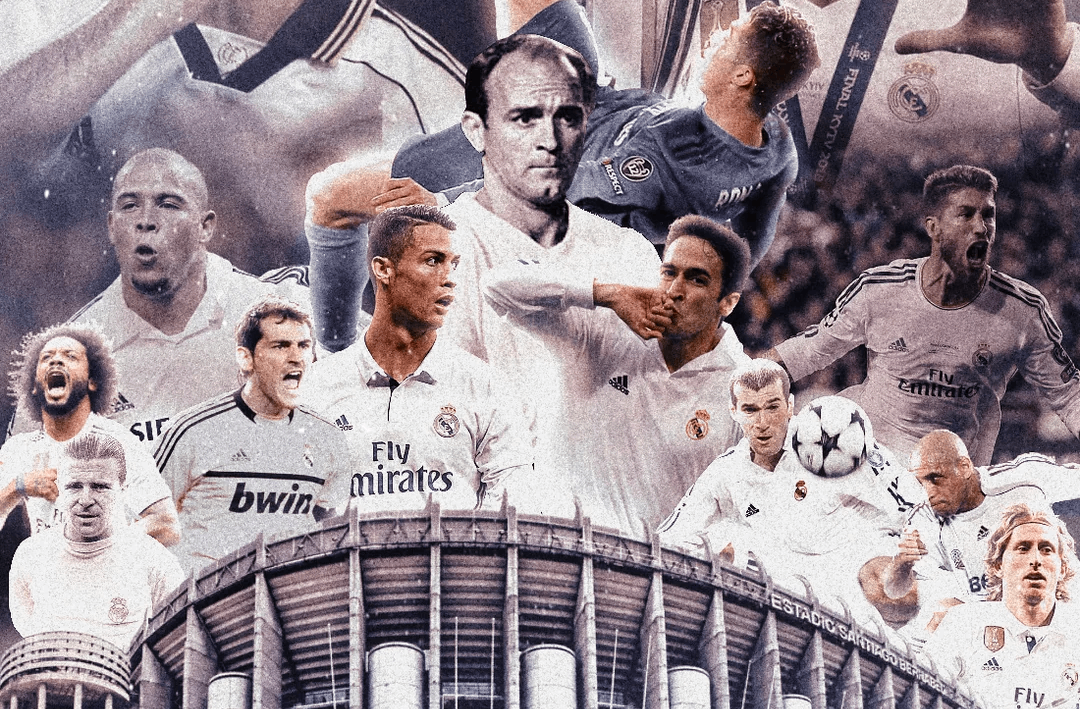
Real Madrid for over a century now has been focused on inviting excelent football players. From the golden era of Di Stéfano and Puskás to the modern-day galácticos like Cristiano Ronaldo, Sergio Ramos, and Kylian Mbappe, no other club boasts such a legendary roster of talent.
Los Blancos are considered the best football club of this century by many experts and have consistently won the biggest football trophies. This is what helps them to attract the biggest talents in the world and constantly grow their level throughout their illustrious history. This dominance explains why Real Madrid is frequently cited as the best soccer club in the world, with an unprecedented 15 Champions League trophies (as of 2025) – far more than any competitor in what is certainly the best football league in the world.
This article celebrates the 18 most notable personas that turned Real from a club into a dynasty. By summarizing the trophies, brilliant performances, iconic moments, and lasting impact, we created the list of legends who wore the famous jersey of the Kings of Europe. From goalkeeper Iker Casillas to forward Cristiano Ronaldo, these players didn’t just play for Real Madrid – they defined it.
Iker Casillas
Nicknamed “San Iker” for his miraculous saves, Iker Casillas stands as the greatest goalkeeper in Real Madrid’s illustrious history. After joining the club at age 9, he dedicated 25 years to wearing the famous white shirt, eventually playing 725 official games. His journey from Madrid’s youth academy to global stardom exemplifies the club’s talent development philosophy.
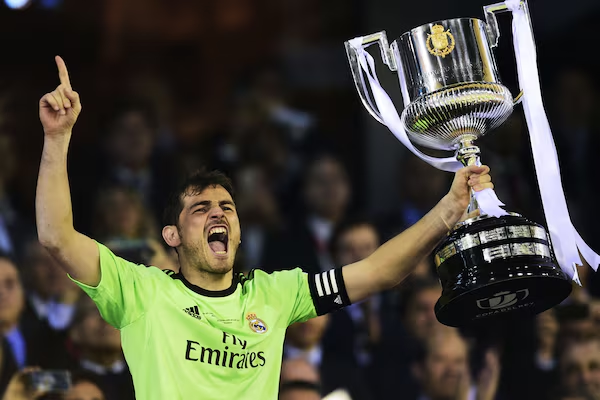
Iker Casillas’ legacy
Beyond his technical brilliance, Casillas established himself as a natural leader. His combination of lightning-quick reflexes, outstanding shot-stopping ability, and calm decision-making under pressure earned him recognition as one of the finest goalkeepers ever 1. Furthermore, he became a cultural icon in Spain, representing national pride during an era of Spanish football dominance.
Iker Casillas’ key achievements
Casillas’ trophy cabinet reflects his extraordinary career:
- 3 UEFA Champions League titles (1999/2000, 2001/2002, 2013/2014)
- 5 La Liga championships and 2 Copa del Rey trophies
- World Cup (2010) and two European Championships (2008, 2012) with Spain
Additionally, he earned five consecutive IFFHS World’s Best Goalkeeper awards (2008-2012) 2 and received the prestigious Golden Glove at the 2010 World Cup 1.
Iker Casillas’ iconic moments
The 2010 World Cup final showcased Casillas at his finest. As captain, he made several crucial saves to secure Spain’s first World Cup title 3. Moreover, he set an impressive record with 509 consecutive minutes without conceding during Euro 2012, breaking Dino Zoff’s longstanding mark.
Iker Casillas’ impact on Real Madrid
Throughout his career, Casillas provided defensive stability that proved fundamental to Real Madrid’s success. His leadership qualities and exceptional performances earned him immense respect from Madrid supporters. Subsequently, his influence extended beyond the pitch when he joined the club’s board of directors in 2020.
Fernando Hierro
Few players embody Real Madrid’s defensive excellence better than Fernando Hierro, who dominated across multiple positions during his remarkable 14-year tenure at the club. Originally signed from Valladolid in 1989, Hierro evolved from midfielder to one of the finest center-backs in football history while maintaining an extraordinary goal-scoring ability.
Fernando Hierro’s legacy
Hierro’s legacy rests on his remarkable versatility and leadership. Initially deployed as a midfielder by coach Radomir Antić, he showcased his scoring prowess with an astonishing 44 league goals across three seasons. Meanwhile, his defensive capabilities allowed him to excel as both center-back and sweeper, forming an exceptional partnership with Manolo Sanchís. Throughout his career, he demonstrated a defender’s reliability paired with a forward’s scoring instinct.
Fernando Hierro’s key achievements
Hierro’s trophy cabinet reflects his central role in one of Real Madrid’s golden eras:
- 5 La Liga titles (1989/90, 1994/95, 1996/97, 2000/01, 2002/03)
- 3 UEFA Champions League trophies (1997/98, 1999/00, 2001/02)
- 1 Copa del Rey (1992/93)
- 4 Spanish Super Cups
- 2 Intercontinental Cups
Fernando Hierro’s iconic moments
Notably, Hierro scored a hat-trick against Real Zaragoza in a 3-1 home victory in March 2002. His crucial header against Denmark in 1993 qualified Spain for the 1994 World Cup. In fact, he accumulated 29 goals in 89 international appearances, maintaining nearly the same goals-to-games ratio as Fernando Torres.
Fernando Hierro’s impact on Real Madrid
Hierro’s influence on Real Madrid was immense. His leadership qualities made him captain after Sanchís’ retirement. He played 601 official matches for the club, including 497 in La Liga where he scored 105 goals – an extraordinary record for a defensive player. His intelligence, passing ability, and strategic vision ultimately established him as one of the most complete leaders in the club’s history.
Marcelo
Brazilian maestro Marcelo redefined what it means to be a left-back at Real Madrid, transforming the position from purely defensive to an attacking catalyst. Despite technically being part of the defense, he charged forward like a winger, creating opportunities with the finesse of a number 10.
Marcelo’s legacy
Marcelo’s legacy rests on his unparalleled dribbling skills and technical prowess that broke through defensive pressure. Remarkably, he became the most decorated player in Real Madrid’s storied history 9. His attacking mentality made him the perfect successor to compatriot Roberto Carlos, yet with more subtlety in his offensive game.
Marcelo’s key achievements
Marcelo’s trophy cabinet is unmatched:
- 25 trophies with Real Madrid
- 5 Champions League titles (2014, 2016, 2017, 2018, 2022)
- 6 La Liga championships
- 103 assists and 38 goals across 546 appearances
Marcelo’s iconic moments
Throughout his career, Marcelo delivered in crucial moments. He scored in the 2014 Champions League final against Atlético Madrid and provided critical assists in both the 2017 and 2018 finals.
Marcelo’s impact on Real Madrid
Beyond statistics, Marcelo’s influence was fundamental to Madrid’s attacking philosophy. As Zinedine Zidane’s trusted lieutenant, his offensive capabilities allowed teammates like Cristiano Ronaldo to drift inside. His charismatic leadership culminated in him becoming Real Madrid’s first foreign captain since 1904.
Sergio Ramos
Embodying both warrior spirit and technical brilliance, Sergio Ramos transformed from Florentino Perez’s first Spanish signing in 2005 into a force of nature at Real Madrid. Throughout his 16-year tenure, he evolved from an aggressive right-back into one of history’s greatest central defenders.
Sergio Ramos’ legacy
Ramos’ legacy combines leadership, tactical intelligence, and extraordinary scoring ability. His iron will and unshakeable self-belief made him a formidable opponent. Beyond traditional defending, he accumulated an incredible 101 goals for Madrid, including 72 in La Liga – an utterly extraordinary record for a defender.
Sergio Ramos’ key achievements
His trophy cabinet showcases:
- 22 major honors with Real Madrid
- 5 La Liga titles and 4 Champions League trophies
- 4 Club World Cups and 2 Copa del Rey titles
- Named to FIFA FIFPro World XI eleven times
Sergio Ramos’ iconic moments
His most historic contribution came in the 93rd minute of the 2014 Champions League final, scoring an equalizer against Atlético Madrid that propelled Real to “La Décima” 1. Additionally, he scored in both the 2016 and 2018 Champions League finals 16.
Sergio Ramos’ impact on Real Madrid
As captain from 2015-2021 17, Ramos became the first player to lead a team to three consecutive Champions League triumphs 14. His passion brought the team closer in pivotal moments 17, although his record-setting 26 red cards 16 reflected his aggressive style.
Cristiano Ronaldo
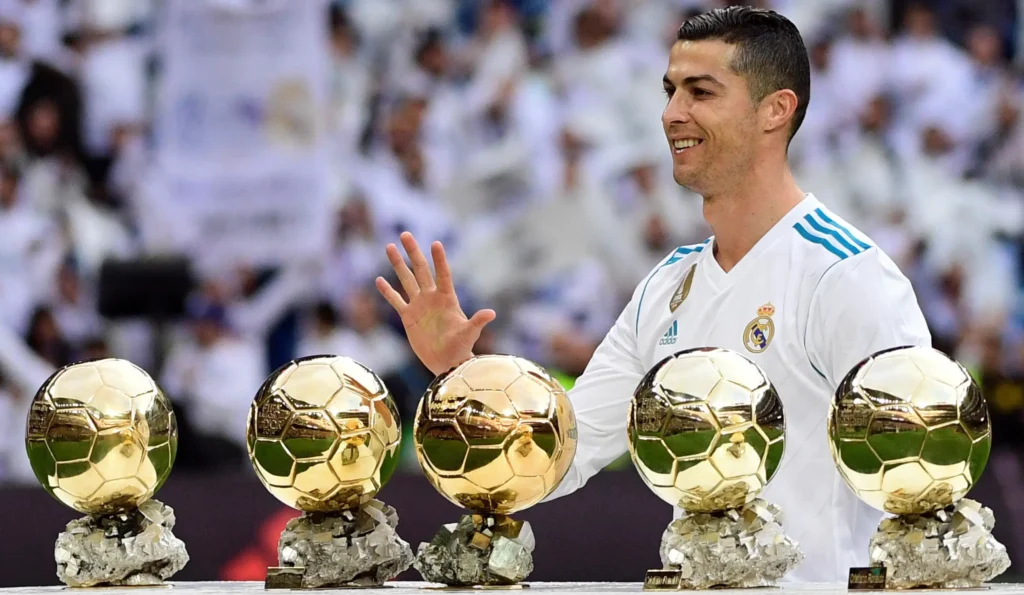
Next on the list is the one of the grates players in football history. Cristiano Ronaldo’s record-breaking goal tally established him as Real Madrid’s greatest ever scorer, amassing an astonishing 451 goals in just 438 appearances between 2009-2018. Throughout his nine seasons at the Bernabéu, the Portuguese phenomenon averaged over a goal per game, a testament to his unparalleled scoring prowess.
Cristiano Ronaldo’s legacy
Ronaldo’s legacy at Real Madrid transcends statistics. Club president Florentino Pérez aptly labeled him “the heir to Alfredo Di Stéfano”. His remarkable consistency produced numerous records, including becoming Madrid’s all-time leading goalscorer, highest La Liga scorer with 312 goals, and most prolific Champions League marksman with 140 goals.
Cristiano Ronaldo’s key achievements
His trophy cabinet from Madrid years includes:
- 4 Champions League titles (2014, 2016, 2017, 2018)
- 2 La Liga championships
- 2 Copa del Rey trophies
- 3 Club World Cups
Personally, he collected four Ballon d’Or awards while representing Los Blancos, plus three Golden Shoe honors.
Cristiano Ronaldo’s iconic moments
Particularly memorable was his spectacular bicycle kick against Juventus in 2018, alongside scoring twice in the 2017 Champions League final against the same opponent. His hat-trick against Wolfsburg in 2016 single-handedly reversed a 2-0 first-leg deficit.
Cristiano Ronaldo’s impact on Real Madrid
Ronaldo’s presence transformed Madrid into Europe’s dominant force. Before his arrival, the club had endured a disappointing spell, winning just one major trophy in six years 21. His departure in 2018 significantly affected Madrid’s offensive output, with goals per match dropping by 0.66 21. Nevertheless, his lasting influence helped establish Los Blancos as the undisputed kings of Europe.
Raúl González
Starting his career at Atlético Madrid’s youth academy before crossing town to join Real Madrid in 1992, Raúl González Blanco became the embodiment of Madridismo throughout his 16-year tenure with the club. Known simply as “Raúl,” his journey from discarded Atlético prospect to Real Madrid icon represents one of football’s most remarkable transformations.
Raúl González’s legacy
Raúl’s legacy rests on his extraordinary adaptability and complete skillset. Fernando Hierro perfectly summarized his teammate: “He’s not a 10 in any specific dimension, but at least an 8.5 in all that matter”. His early career featured relentless energy and purposeful movement, while his later years showcased tactical intelligence that compensated for diminishing physical abilities. Throughout his career, he maintained the distinction of never receiving a red card.
Raúl González’s key achievements
His trophy cabinet reflects his dominance:
- 6 La Liga championships
- 3 UEFA Champions League titles
- 4 Spanish Super Cups
- 2 Intercontinental Cups
Individually, he collected two Pichichi trophies (1999, 2001) and three UEFA Club Forward of the Year awards (1999-2002) .
Raúl González’s iconic moments
Raúl consistently delivered in crucial matches, scoring in two Champions League finals – against Valencia in 2000 and Bayer Leverkusen in 2002. His 300th Real Madrid goal came via hat-trick against Real Unión in 2008, while his 323rd goal broke Alfredo Di Stéfano’s long-standing club record.
Raúl González’s impact on Real Madrid
Beyond statistics, Raúl became captain after Hierro’s departure in 2003, embodying the club’s values both on and off the pitch. His influence extended beyond Spain, as Alex Ferguson admitted being “more afraid of Raúl than Figo and Zidane”, underscoring his reputation as one of the most important players in Spanish football history.
Zinedine Zidane
Zinedine Zidane’s extraordinary connection with Real Madrid transcends his playing days, extending into a historic coaching career. The French maestro first dazzled as a midfielder whose elegance, vision and ball control earned him recognition as one of the greatest players of all time, before achieving unprecedented success as manager.
Zinedine Zidane’s legacy
As a player, Zidane captured hearts with his technical brilliance, winning the Ballon d’Or in 1998. After retiring, he transformed into an exceptional coach, becoming the first to win three consecutive Champions League titles, a feat unmatched in the modern era. His coaching style emphasized adaptability rather than rigid ideology, with tactical flexibility allowing him to nullify opponents’ strengths.
Zinedine Zidane’s key achievements
Zidane’s remarkable trophy cabinet includes:
- As player: 1 Champions League, 1 Intercontinental Cup, 1 European Super Cup, 1 La Liga, 2 Spanish Super Cups
- As coach: 3 Champions Leagues, 2 FIFA Club World Cups, 2 European Super Cups, 2 La Liga titles, 2 Spanish Super Cups
Zinedine Zidane’s iconic moments
His greatest on-field moment came in the 2002 Champions League final against Bayer Leverkusen, scoring a magnificent left-foot volley. As manager, his tactical masterclass against Liverpool in 2018 completed his historic Champions League threepeat.
Zinedine Zidane’s impact on Real Madrid
Altogether, Zidane won 11 trophies across two managerial spells, averaging one trophy every 23 games – the best ratio of any coach in club history. His innovative midfield setup with Casemiro, Kroos and Modrić provided the foundation for Madrid’s European dominance
Roberto Carlos
The powerful left foot of Roberto Carlos revolutionized the full-back position during his 11-year spell (1996-2007) at Real Madrid. Arriving from Inter Milan, the Brazilian speedster who ran 100 meters in 10.9 seconds transformed what was expected from defenders.
Roberto Carlos’ legacy
Throughout his career, Roberto Carlos redefined the left-back role by combining defensive responsibilities with attacking prowess, earning him the cosideration as a one of the best left-backs in the history. His prodigious speed coupled with tremendous shot power (reaching 140 km/h) made him a dual threat. Specifically, he became the prototype for modern attacking full-backs, paving the way for successors like Marcelo.
Roberto Carlos’ key achievements
His remarkable trophy collection includes:
- 3 Champions League titles
- 4 La Liga championships
- 2 Intercontinental Cups
- 1 European Super Cup
Simultaneously, he scored 71 goals in 584 matches and accumulated 49 direct free kicks throughout his career.
Roberto Carlos’ iconic moments
His bending 40-yard free kick against France in 1997 remains legendary. Likewise, his “impossible goal” from near the sideline against Tenerife in 1998 showcased his extraordinary technique.
Roberto Carlos’ impact on Real Madrid
As a cornerstone of the “Galácticos” alongside Zidane, Figo, Ronaldo, and Beckham, he held the record for most appearances by a foreign-born player (370 in La Liga) 30. Coach Vicente del Bosque once remarked, “Roberto Carlos can cover the entire left wing all on his own”, validating his complete mastery of both defensive and offensive responsibilities.
Karim Benzema
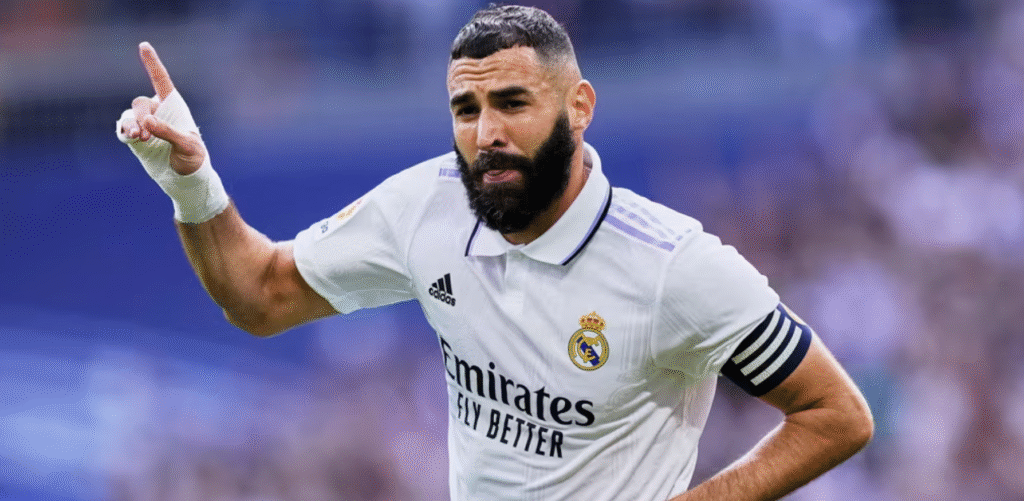
Karim Benzema’s transformation from Cristiano Ronaldo’s supporting cast to Madrid’s offensive centerpiece represents one of football’s most remarkable career evolutions. Arriving from Lyon in 2009, the French striker patiently waited for his moment to shine before becoming the club’s second all-time leading goalscorer with 354 goals in 648 appearances.
Karim Benzema’s legacy
Beyond statistics, Benzema’s legacy rests on his technical brilliance and adaptability. Following Ronaldo’s 2018 departure, he evolved from a facilitating false 9 to the focal point of Madrid’s attack. His technical skills, vision, and versatility earned him recognition as one of history’s greatest strikers. Ultimately, his patience paid dividends as he reached the pinnacle of individual recognition with the 2022 Ballon d’Or.
Karim Benzema’s key achievements
Benzema’s remarkable accomplishments include:
- 25 trophies (equaling Marcelo as most successful Madrid player)
- 5 Champions League titles and 4 La Liga championships
- 238 La Liga goals across 14 seasons
- 90 Champions League goals (fourth highest all-time)
Karim Benzema’s iconic moments
Throughout his Madrid tenure, Benzema delivered in crucial situations. His hat-tricks against PSG and Chelsea during the 2021/22 Champions League campaign 7 demonstrated his clutch performances. His Panenka penalty against Manchester City further showcased his nerves of steel.
Karim Benzema’s impact on Real Madrid
Above all, Benzema’s willingness to sacrifice for teammates defined his early years, providing 41 assists for Ronaldo. After that, his evolution into captain and offensive leader highlighted his complete transformation.
Luka Modrić
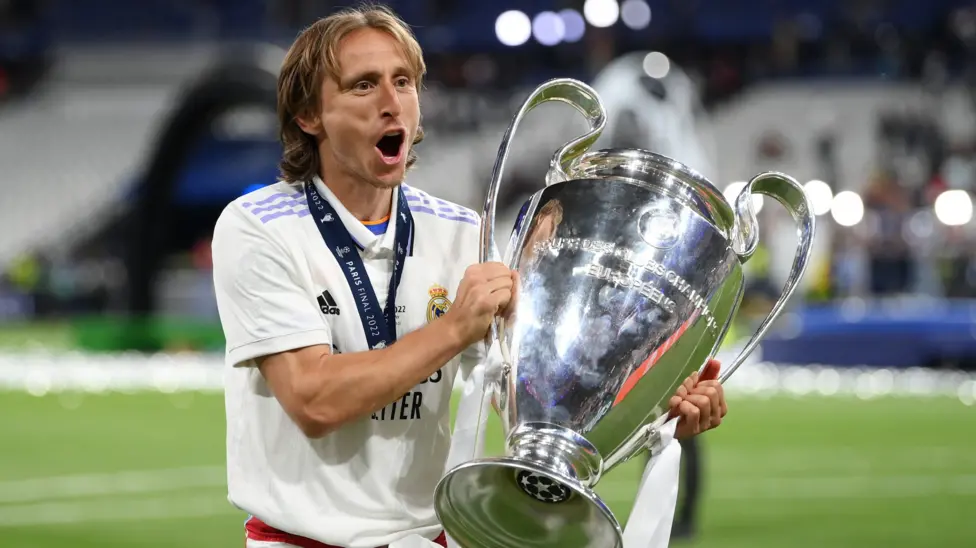
Crowned as the most decorated player in Real Madrid history with 28 titles, Luka Modrić’s arrival from Tottenham in 2012 forever altered the club’s midfield dynamics. The Croatian maestro’s influence extended far beyond statistics—he became the silent engine powering Madrid’s golden era.
Luka Modrić’s legacy
In essence, Modrić’s legacy rests on breaking barriers. He shattered the decade-long Messi-Ronaldo Ballon d’Or monopoly in 2018, becoming the first different winner since Kaká in 2007. His remarkable vision, precision passing, and unmatched technical ability established him as one of history’s greatest midfielders.
Luka Modrić’s key achievements
His remarkable trophy cabinet includes:
- 6 Champions League titles
- 4 La Liga championships
- 2 Copa del Rey trophies
- 5 Spanish Super Cups
On balance, his individual accolades prove equally impressive—winning FIFA’s The Best award and UEFA’s Men’s Player of the Year in 2018, plus six inclusions in the FIFA FIFPro World XI.
Luka Modrić’s iconic moments
Modrić’s defining moments include his masterclass against Liverpool in the 2018 Champions League final and his spectacular 25-yard strike against Argentina at the 2018 World Cup. His crucial assist for Sergio Ramos in the 93rd minute of the 2014 Champions League final proved pivotal to winning “La Décima”.
Luka Modrić’s impact on Real Madrid
Alongside Kroos and Casemiro, Modrić formed one of football’s finest midfield trios 39. Consequently, his intelligence, leadership, and probing passes fueled Madrid’s unprecedented success 39, making him indispensable throughout the club’s European dominance.
Toni Kroos
With a metronomic passing accuracy of 93.6% across his La Liga career, Toni Kroos orchestrated Real Madrid’s midfield for a decade. The German maestro’s extraordinary precision reached its pinnacle in the 2021-22 season with an exceptional 95.1% completion rate, making him the ultimate controller in modern football.
Toni Kroos’ legacy
Kroos established himself as one of history’s greatest midfielders through immaculate ball distribution and tactical intelligence. As the backbone of Madrid’s buildup, coaches sought his counsel on constructing attacks. His vision allowed him to execute game-changing passes, earning him recognition as “one of the greatest midfielders of all time”. In his final season (2023-24), he maintained his excellence with a 94.7% passing accuracy.
Toni Kroos’ key achievements
Throughout his tenure, Kroos accumulated:
- 5 UEFA Champions League titles
- 4 La Liga championships
- 6 FIFA Club World Cups (a record)
- 22 trophies overall with Real Madrid
Toni Kroos’ iconic moments
Especially notable was his first El Clásico goal against Barcelona—a direct free kick in April 2021 that secured a crucial 2-1 victory. His long-ball mastery triggered numerous goals, including a December 2020 sequence that put Madrid ahead against Granada. In his final match, he provided the assist for Carvajal’s goal in the 2024 Champions League final victory.
Toni Kroos’ impact on Real Madrid
Alongside Modrić and Casemiro, Kroos formed a midfield nucleus that controlled matches against Europe’s best. His departure in 2024 left a void impossible to fill with any single player. As former teammate Dani Carvajal noted, Kroos possessed “a range of passing, reading of the game and NFL quarterback-esque performances” that transformed Madrid into Europe’s dominant force.
Paco Gento
As the only footballer in history to claim six European Cups, Francisco “Paco” Gento stands alone atop Real Madrid’s pantheon of champions. Nicknamed “La Galerna” (The Gale), the Spanish winger terrorized defenses with his lightning pace, exceptional dribbling skills and pinpoint crossing accuracy during his extraordinary 18-season tenure at the club.
Paco Gento’s legacy
Gento’s legacy rests on his status as one of the greatest left-wingers ever to play the beautiful game. His remarkable speed became his trademark weapon—yet unlike many fast players, Gento maintained perfect control throughout his sprints. Remarkably, he could slam the brakes mid-sprint, sending defenders skidding past while he calmly drifted infield. His technical abilities allowed him to remain effective until age 37, maintaining peak performance well into his mid-30s.
Paco Gento’s key achievements
Gento’s trophy cabinet stands among football’s most impressive:
- 6 European Cups (a record unmatched for over 50 years)
- 12 La Liga championships
- 2 Spanish Cups, 2 Latin Cups, 1 Intercontinental Cup
- 23 total honors (equaled by Marcelo just before Gento’s death)
Paco Gento’s iconic moments
His most memorable contribution came in the 1958 European Cup final against Milan, scoring the winning goal in extra time after 107 minutes. In 1966, he captained an entirely Spanish “Yeyé” Madrid side to European glory, securing his record-setting sixth title.
Paco Gento’s impact on Real Madrid
Beyond his playing career, Gento remained devoted to Madrid. In October 2016, he was named honorary club president, recognizing his lifetime contribution to transforming a club that hadn’t won the league in two decades into world football’s greatest dynasty.
Alfredo Di Stéfano
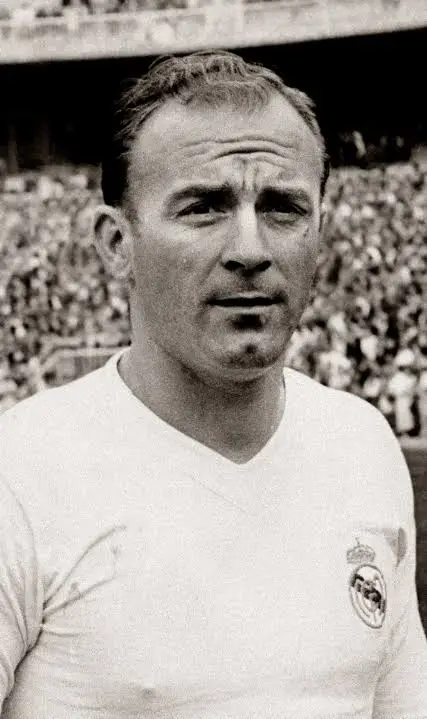
Nicknamed “Saeta Rubia” (Blond Arrow), Alfredo Di Stéfano revolutionized football as arguably the most complete player in Real Madrid’s storied history. The Argentine-born forward possessed extraordinary versatility that allowed him to influence every area of the pitch, making him the architect of Madrid’s golden era.
Alfredo Di Stéfano’s legacy
First and foremost, Di Stéfano embodied total football decades before the concept gained popularity. His unparalleled ability to play across all positions earned him universal acclaim. As Bobby Charlton noted: “The Argentine was the smartest player I ever saw. He came onto the pitch and the game had been largely played out in his head”. Indeed, his tactical intelligence and physical dominance established him as the prototype for modern footballers.
Alfredo Di Stéfano’s key achievements
Di Stéfano’s trophy cabinet reflects his dominance:
- 5 consecutive European Cups (1956-1960)
- 8 Spanish league championships
- 1 Intercontinental Cup and 2 Latin Cups
- 2 Ballon d’Or awards (1957, 1959) and a Super Ballon d’Or
- 308 goals in 396 official matches
Alfredo Di Stéfano’s iconic moments
Remarkably, Di Stéfano scored in all five European Cup finals, including a hat-trick in the legendary 7-3 victory over Eintracht Frankfurt in 1960. His finest goal came against Reims in Stuttgart during the fourth final.
Alfredo Di Stéfano’s impact on Real Madrid
Di Stéfano transformed Madrid from a club that hadn’t won a league title in 20 years into European royalty. Accordingly, he became the symbol around which Madrid built its identity and global reputation.
Ferenc Puskás
Known for possessing “the best left foot ever seen at the Santiago Bernabéu Stadium,” Ferenc Puskás arrived at Real Madrid at age 31 yet still managed to leave an indelible mark on the club’s history. Nicknamed “Pancho” or “Cañoncito pum” by adoring fans, the Hungarian maestro formed one of football’s most prolific partnerships with Alfredo Di Stéfano.
Ferenc Puskás’ legacy
Puskás’ legacy extends far beyond his playing days. His extraordinary goal-scoring ability earned him recognition as one of the greatest forwards in history. In 1999, he was voted the 6th best player of the 20th century. Hence, FIFA honored him posthumously by naming their award for “the most beautiful goal” the Puskás Award.
Ferenc Puskás’ key achievements
Throughout his eight seasons with Los Blancos, Puskás won:
- 3 European Cups
- 5 La Liga titles
- 1 Spanish Cup and 1 Intercontinental Cup
Beyond these team honors, he claimed four Pichichi trophies as La Liga’s top scorer.
Ferenc Puskás’ iconic moments
Remarkably, Puskás scored four goals in the 1960 European Cup final against Eintracht Frankfurt. Even more impressive, he remains the only player to score four goals in a European Cup final.
Ferenc Puskás’ impact on Real Madrid
With 242 goals in 262 appearances, Puskás was instrumental in completing Madrid’s legendary team of the era. His perfect complementary role to Di Stéfano created arguably “the most prolific and successful scoring partnership” in football history.
Manuel Sanchís
Emerging from Real Madrid’s youth system as part of “La Quinta del Buitre,” Manuel Sanchís achieved what none of his famous generation-mates could – dedicating his entire professional career to Los Blancos. The Madrid-born defender debuted in December 1983, scoring the winning goal against Real Murcia, and remained loyal for 18 seasons.
Manuel Sanchís’ legacy
Sanchís established a new standard at Real Madrid through his sporting excellence and exemplary professionalism. Primarily, his defensive composure, tactical intelligence and positional awareness made him stand out as an aggressive yet fair sweeper. Interestingly, his father Manuel Sanchís Martínez also represented the club, making them one of only four father-son pairs to win the European Cup/Champions League.
Manuel Sanchís’ key achievements
Throughout his career, Sanchís accumulated an impressive trophy collection:
- 8 La Liga championships
- 2 UEFA Champions League titles (1997-98, 1999-2000)
- 2 UEFA Cups (1984-85, 1985-86)
- 5 Spanish Super Cups
Manuel Sanchís’ iconic moments
In 1999-2000, despite featuring sparingly, Sanchís contributed to Madrid’s eighth European Cup triumph against Valencia. Given these points, his retirement in 2001 came after reaching the pinnacle – lifting his second Champions League trophy.
Manuel Sanchís’ impact on Real Madrid
Ultimately, Sanchís’ 710 official appearances and 13 years as captain cemented his status among the club’s greatest servants. First with Castilla then the main squad, his journey personified Madrid’s excellence.
José Antonio Camacho
Fierce on the field and committed to the core, José Antonio Camacho exemplified the warrior spirit of Real Madrid during his remarkable 15-year career at the club. As one of the best defenders in Spanish football history, Camacho appeared in an impressive 577 official matches with Los Blancos.
José Antonio Camacho’s legacy
Often called the “Great Captain”, Camacho’s legacy stems from his extraordinary dedication and fighting spirit. For many fans from that era, he represented the ultimate defensive wall on Madrid’s left flank. His iron-willed approach to defending made him the most dependable warrior on the pitch, inspiring teammates through sheer determination.
José Antonio Camacho’s key achievements
Throughout his Madrid career, Camacho amassed:
- 9 La Liga championships
- 2 UEFA Cups
- 5 Spanish Cups
- 1 Spanish League Cup
- 2 Spanish Super Cups
José Antonio Camacho’s iconic moments
In January 1978, Camacho suffered a devastating knee injury that sidelined him for nearly two years. Yet through tremendous sacrifice and determination, he fought back to full fitness, becoming instrumental in Madrid’s consecutive UEFA Cup victories.
José Antonio Camacho’s impact on Real Madrid
Beyond his playing days, Camacho remained loyal to Madrid, serving as youth team coach and assistant to Alfredo Di Stéfano. His influence continued as he twice became first-team coach in 1998 and 2004, though both tenures were brief.
Vicente del Bosque
Humble yet extraordinarily effective, Vicente del Bosque led Real Madrid through one of its most successful periods in modern history from 1999 to 2003. His patient demeanor perfectly balanced the star-studded Galácticos era, creating a winning culture that produced unprecedented results.
Vicente del Bosque’s legacy
Throughout his tenure, del Bosque established himself as a masterful man-manager who prioritized team harmony over individual brilliance. His tactical flexibility plus understated leadership style earned him recognition as “one of the greatest managers of all time”. Primarily known for his calm demeanor, he created an environment of trust and respect that allowed superstars to flourish.
Vicente del Bosque’s key achievements
During his four seasons as head coach, del Bosque secured:
- 2 UEFA Champions League titles (2000, 2002)
- 2 La Liga championships (2001, 2003)
- 1 Intercontinental Cup (2002)
- 1 UEFA Super Cup (2002)
- 1 Spanish Super Cup (2001)
Vicente del Bosque’s iconic moments
His tactical brilliance shone against Barcelona in 2002, deploying Iván Helguera defensively to secure a famous 2-0 Champions League semifinal victory. Fundamentally, del Bosque’s Madrid reached the Champions League semifinals every season under his guidance.
Vicente del Bosque’s impact on Real Madrid
Yet despite his success (104 wins from 186 matches), Madrid controversially dismissed him in 2003—just one day after winning La Liga. In retrospect, the club would not win another major trophy until 2007.
Hugo Sánchez
Nicknamed “Hugol” for his extraordinary goal-scoring prowess, Hugo Sánchez brought Mexican flair to Real Madrid between 1985-1992. His spectacular bicycle kicks and trademark somersault celebrations thrilled fans across his seven-season tenure at the Bernabéu.
Hugo Sánchez’s legacy
Primarily known for his finishing precision, Sánchez revolutionized forward play through his acrobatic style. As the first notable exponent of the backflip celebration, he combined theatrical flair with deadly efficiency. His perfect left foot earned him recognition as one of history’s greatest strikers, becoming the first Mexican to truly succeed on the global stage.
Hugo Sánchez’s key achievements
Sánchez’s trophy cabinet showcases remarkable success:
- 5 consecutive La Liga titles (1985-1990)
- 5 Pichichi trophies as top scorer
- UEFA Cup (1986) and Copa del Rey (1989)
- 38 goals in 1989-90 season, all with first-touch finishes
Hugo Sánchez’s iconic moments
Perhaps most impressively, Sánchez scored all 38 goals in his record-setting 1989-90 campaign with single touches. His celebrated “el señor gol” against Logroñés in 1988 prompted his manager to suggest “play should be suspended and champagne offered to 80,000 fans”.
Hugo Sánchez’s impact on Real Madrid
In parallel with the famed “Quinta del Buitre,” Sánchez became the perfect striker for Madrid’s golden generation. His 164 goals in 240 La Liga appearances cemented his status as one of Los Blancos’ greatest forwards ever.
In Conclusion
Throughout its illustrious history, Real Madrid has established itself as the undisputed Kings of European football, thanks largely to the extraordinary talents who wore the famous white shirt. These 18 legends didn’t merely represent the club – they fundamentally transformed it into the greatest sporting dynasty ever witnessed. From Di Stéfano’s revolutionary total football to Cristiano Ronaldo’s goal-scoring prowess, each player contributed unique qualities that elevated Los Blancos to unprecedented heights.
What truly distinguishes Real Madrid from other clubs worldwide remains the remarkable concentration of talent across different eras. During the 1950s, Gento and Puskás dominated Europe with five consecutive European Cups. Afterwards, players like Camacho and Sanchís established defensive stability during challenging periods. Subsequently, the Galácticos era brought together generational talents like Zidane, Roberto Carlos, and Raúl, creating teams that dazzled with technical brilliance.
Most compelling evidence of Madrid’s excellence appears in their trophy cabinet – 15 Champions League titles dwarfs any competitor’s achievements. Behind each trophy stands remarkable individuals who delivered when pressure mounted highest. Sergio Ramos’ 93rd-minute equalizer in the 2014 final, Zidane’s volley against Leverkusen, or Modrić’s masterful control against Liverpool – these moments define not just careers but football history itself.
Beyond statistics and trophies, these players embodied the Madridista spirit – relentless pursuit of excellence coupled with unwavering self-belief. Their combined legacies explain why Real Madrid transcends sport to become a global cultural phenomenon admired by millions worldwide.
Undoubtedly, future stars will emerge to carry this storied tradition forward. However, these 18 giants laid the foundation upon which Madrid’s reputation stands. Their technical brilliance, leadership qualities, and iconic performances created the template for excellence that continues to attract the world’s finest talents to the Santiago Bernabéu. Together, they forged the greatest football club ever – one whose influence stretches far beyond the beautiful game itself.

